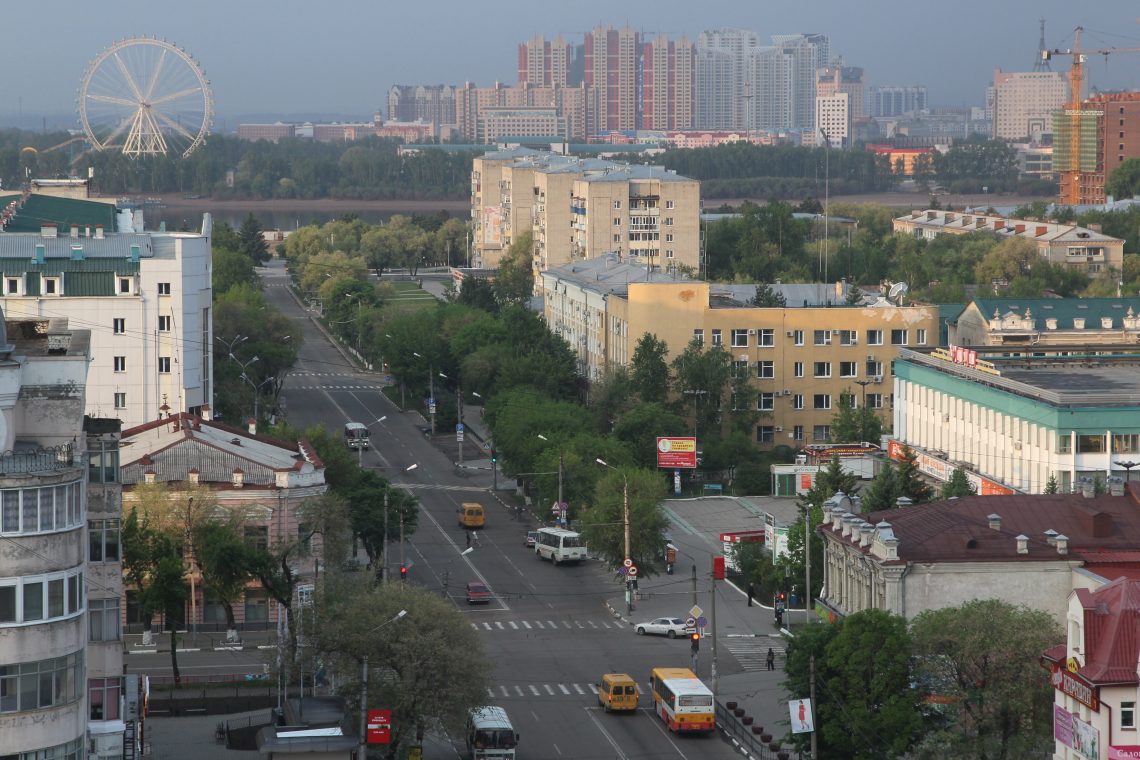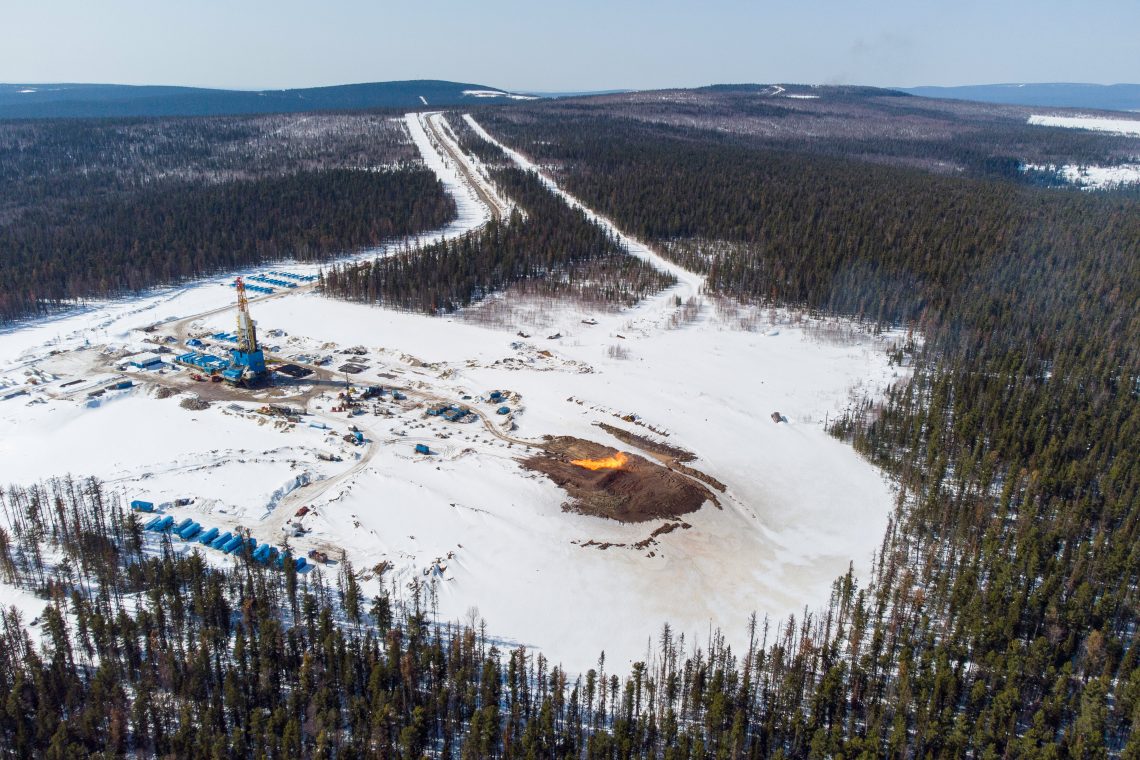China is not coming to Russia’s rescue
Despite their shared conflict with the West, China is keeping its distance from Russia militarily while capitalizing economically on energy sanctions against Moscow.

In a nutshell
- China does not appear to be arming Russia in its war on Ukraine
- Beijing rhetorically supports Ukraine’s sovereignty, territorial integrity
- China is buying discounted Russian oil and gas because of Western sanctions
After the West imposed unprecedented sanctions on Russia, relations between Beijing and Moscow should have reached a new level of partnership. At least, that’s what many thought until recently.
There has, indeed, been a steady progression in bilateral ties in the last eight years.
In 2014, the year when the Kremlin launched its initial invasion of Ukraine, Russian President Vladimir Putin made a significant visit to China. Afterward, there was talk of a breakthrough in relations between the two countries, that these were already allies working together to build the “Greater Eurasia” project. And trade has grown significantly in recent years, from $95 billion in 2013 to $147 billion in 2021.
Both sides also talked about a strategic partnership and held joint military exercises. Before his February 2022 visit to Beijing during the Winter Olympics, Mr. Putin wrote an article entitled “Russia and China: a strategic partnership focused on the future.”
Given this bilateral bonhomie, many expected that China would unequivocally support Russia in its war on Ukraine more than just rhetorically, including by helping Moscow mitigate the damage from Western sanctions.
But that did not happen.
Rhetorical evenhandedness
First, let us listen closely to the Chinese rhetoric. In March, Chinese Premier Li Keqiang said: “We respect the independence of Ukraine, its sovereignty and territorial integrity.”
In April, experts of the Russian website URA.ru analyzed materials related to Ukraine on the leading Chinese state television channel CCTV. No news or analytical articles could be found on the website about the “special military operation’’ of the Armed Forces of the Russian Federation in Ukraine. At the same time, many videos appeared with the tag “Ukraine.” In short videos (no more than a minute), the audience is told about the conflict. For example, one 20-second excerpt included President Putin’s statement, “Russia will launch a lightning counterattack if external forces intervene in the situation in Ukraine.” Another 14-second sample conveys Ukrainian President Volodymyr Zelenskiy’s remark that “Ukraine will receive weapons from the West and will be able to counterattack by July.”
Chinese President Xi Jinping declared respect for Ukraine’s territorial integrity and the need for a cease-fire.
In May, during a conversation with French President Emmanuel Macron, Chinese President Xi Jinping declared respect for Ukraine’s territorial integrity and the need for a cease-fire. On the other hand, at a United Nations Security Council meeting after the start of the Russian-Ukrainian war, China declared Russia’s “legitimate security concerns” against the background of NATO expansion. After that, however, China did not make such statements.
In another sign of its cautious approach, China has not recognized Russia’s claim that two eastern regions of Ukraine are sovereign states or acknowledged Russian rule in Crimea, which the Kremlin invaded and annexed in 2014. Nonetheless, at the July G-20 meeting of foreign ministers in Bali, U.S. Secretary of State Antony Blinken criticized China’s support for Russia at the United Nations, dissemination of Kremlin talking points through Chinese state media and joint military exercises with Moscow.
Also on Russia by Evgeny Gontmakher
- Russia under sanctions
- How Russia can shed centuries of corruption
- Can Russia’s tax system withstand sanctions?
No weapons support
On June 12, Chinese Defense Minister Wei Fenghe said that China is not providing arms or materiel to Russia and Beijing’s partnership with Moscow was not an alliance. “The development of Sino-Russian relations is a partnership, not an alliance. It is not targeted against third parties,” Mr. Wei said. According to him, Beijing wants the war in Ukraine to end. However, the Chinese authorities do not consider sanctions a tool for resolving the crisis. He also repeatedly called the situation in the Ukraine war, going beyond the usual definition of “conflict.”
“We also hope that the United States and NATO will hold talks with Russia to create conditions for an early cease-fire,” he said.
Energy bonanza for China
But China is exploiting the situation more decisively in its economic relations with Russia. The sanctions imposed against Russia have allowed China to help its partner lessen the economic damage through greater trade.
Bilateral trade looked promising in the first five months of 2022. The General Customs Administration of China estimated that, from January to May, the trade turnover between Russia and China increased by more than 28 percent compared to the same period last year and exceeded $65 billion.
Exports of Russian goods to China in the five months of 2022, compared with the same period in 2022, increased by 46.5 percent and reached $41 billion, while Chinese exports to Russia amounted to $24.5 billion, an increase of 7.2 percent, giving Moscow a healthy positive trade balance with China.
Some 70 percent of Russian exports to China are natural resources, primarily oil, natural gas and coal.
Some 70 percent of Russian exports to China are natural resources, primarily oil, natural gas and coal. At the same time, China has recently increased purchases of Russian Urals grade oil at highly favorable prices, with a discount of about $30 per barrel. Beijing has been running a similar scheme of buying oil at low prices for many years in Iran, which is also under sanctions and has no opportunity to choose its buyers.
A similar situation is developing with natural gas. Chinese state-owned companies Sinopec and PetroChina are negotiating the purchase of liquefied natural gas from Russia at a 10 percent discount. Some traders are afraid to buy Russian gas, fearing secondary sanctions or reputational damage. Chinese companies are ready to take on such risks in exchange for a significant price markdown. As for pipeline gas, China traditionally buys it from Russia at ultra-low prices. Last year Gazprom supplied China with gas (via the Power of Siberia pipeline and, by 2025, the Power of Siberia 2 pipeline) cheaper than any other country except Belarus.
It is not surprising that the same thing happens with coal. The European Union has imposed an embargo on Russian coal, starting in August. At the same time, China has increased imports of Russian coking coal. But again, China buys coal from Russia cheaper than from other suppliers, including the geographically closer Indonesia and Mongolia.
Given the cut-rate prices, it is difficult to call the growth of natural resources exports to China a positive one for Russia.

What China sells to Russia
Meanwhile, in the opposite direction, China sells high-tech products with added value, such as household appliances, smartphones, computers, industrial equipment, cars, etc. Given the international sanctions and the withdrawal of most Western and Japanese brands from Russia, these Chinese products are essential for Russia. But the figures show that the growth of imports from China was insignificant in the first five months of 2022. Moreover, Chinese technology companies reduced their presence. In June 2022, the IT giant Huawei closed four of its 19 official outlets in Russian cities. Other major Chinese manufacturers of smartphones and computers – Xiaomi, Oppo, Lenovo – have also reduced their product supply.
Demand for their products is taking a hit because of the decline in Russian household income and the fear of secondary sanctions since Western countries also supply some components for Chinese smartphones and computers.
The trade in Chinese cars has entered a new phase, too. In April, the Russian government began issuing vehicle approval certificates for Korean and Chinese models assembled at domestic factories. As a result, for example, Haval brand cars manufactured in the Tula region since 2019 now can also be imported from China. It means motorists will have a secure supply of Chinese cars, but some jobs at Russian car factories may be reduced.
But it is too early to say. More recent statistics may show further reductions in the presence of Chinese technology companies in Russia, possibly causing stagnation or even a drop in imports from China in the next quarter.
Scenarios
Several factors could define the future of relations between China and Russia.
The main one is the prospect of ending the Russian-Ukrainian war and possibly easing Western sanctions. Should this happen, China will probably quickly intensify its economic ties with Russia. The infrastructure situation has improved somewhat due to the recent opening of a border road bridge over the Amur River between the Russian city of Blagoveshchensk and the Chinese city of Heihe. However, easing Western sanctions on Russia may also thaw relations with Europe, which will create more competition for China in the Russian market.
Another competitive factor is a sharp increase in Russian trade with India, which expects to fill the gap created by sanctions from the U.S. and the EU. The list of Indian exports to Russia likely to grow includes medicines, plastics, organic and inorganic chemicals, household goods, rice, tea and coffee, dairy and livestock products.
An analysis of the Indian Ministry of Commerce shows that New Delhi can quickly increase exports to Russia of 20 major goods, including marine products, textiles and clothing, shoes, machinery and electronics. At the same time, India is ramping up its purchases of Russian oil. Russia became the second-largest oil exporter to India in May, surpassing Saudi Arabia, further undercutting the “strategic partnership” between China and Russia.








